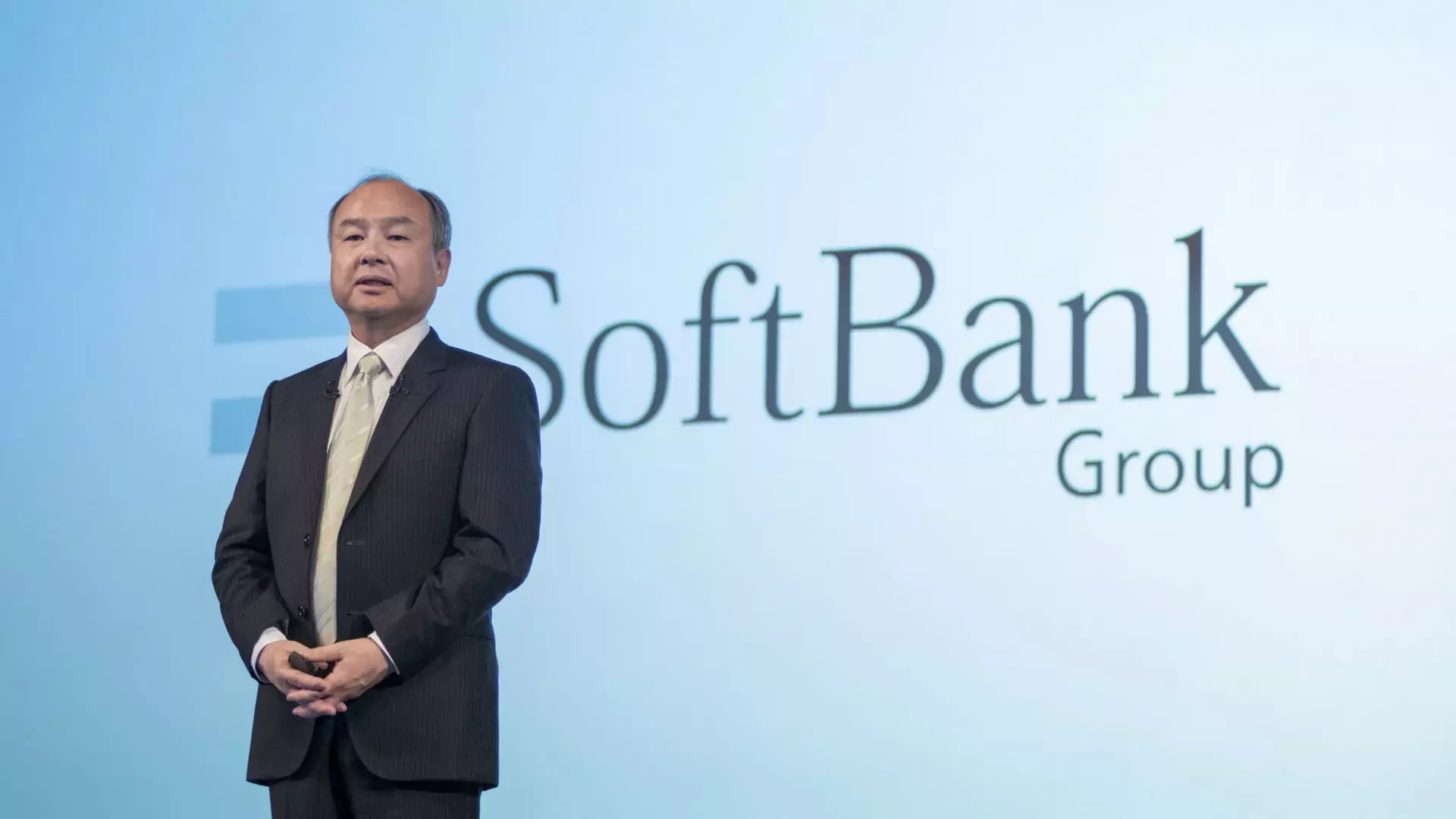SoftBank, the prominent Japanese conglomerate, is once again in the spotlight, showcasing its financial acumen as it navigates the turbulent waters of technology investments. For the fiscal second quarter ending on September 30, the company reported a notable gain of 608.5 billion yen (approximately $3.96 billion) from its Vision Fund investment arm, marking a significant recovery after experiencing losses in the prior quarter. This surge in profitability illustrates not only SoftBank’s resilience but also the volatile nature of the tech investment landscape.
Despite the remarkable quarterly increase, the Vision Fund segment’s overall performance reported a more tempered gain of 373.1 billion yen. This figure, while impressive, is a reminder of the complexities involved in managing not just the investment gains but also the administrative expenses and the factors concerning third-party investors. In stark contrast, the previous quarter had seen the fund log a loss of 204.3 billion yen, thereby emphasizing the volatility inherent in this sector.
The latest performance surge can largely be attributed to substantial valuation gains from high-profile investments, including e-commerce giant Coupang and Chinese ride-hailing leader Didi Global. Additionally, the upward valuation of Bytedance contributed to this financial rebound. However, the Vision Fund 2, in a sharp downturn, reported a net loss of 232.6 billion yen, primarily driven by declining share prices in companies such as Norwegian AutoStore and U.S.-based Symbotic.
SoftBank’s investment narrative is currently defined by its strategic pivot towards the artificial intelligence sector. The company has reported notable successes from the September 2023 initial public offering (IPO) of Arm Holdings, a smartphone chip designer where SoftBank retains a commanding 90% stake. Such ventures are essential as they reflect the company’s intent to adjust its portfolio in response to evolving market demands.
Masayoshi Son, the visionary behind SoftBank, has an eye for high potential areas, notably AI, where he envisions revolutionary advancements in the coming decade. Son has expressed admiration for Nvidia, a leading player in the AI and GPU space, labeling it as “undervalued”. This illustrates his commitment to harnessing existing industry trends and capitalizing on opportunities that arise within the swiftly changing tech environment.
The company’s performance also reflects a broader recovery in Japanese markets, which had been grappling with intense fluctuations over the summer period. Despite these challenges, SoftBank’s net sales increased by 6% to reach 1.77 trillion yen, aided by substantial investment gains from stakes in Alibaba and T-Mobile. This positive momentum has led to a surge in SoftBank’s stock price, which has increased by approximately 50% year-to-date, signaling renewed investor confidence.
However, SoftBank is also under pressure from activist investors like Elliott Management, who have acquired a significant stake in the company. Their calls for a $15 billion share buyback are intended to enhance shareholder value amid varying performance metrics. In response, SoftBank articulated plans to repurchase 6.8% of its available shares, a move designed to bolster shareholder sentiment and reaffirm confidence in its long-term vision.
As Japan transitions from a long-held ultra-low interest rate policy, experts warn of continued economic volatility. Analysts from Barclays highlight that indicators suggest a potential rate hike by late 2024 or early 2025, driven by steady wage growth within the service sector. While the immediate outlook appears more stable compared to earlier tumult, external factors loom large, necessitating cautious optimism moving forward.
SoftBank’s recent financial performance encapsulates both the opportunities and challenges that lie ahead within the technology investment sphere. As the company continues to reposition itself within the AI-driven market landscape, it remains pivotal for investors and industry watchers to keep a close eye on its strategy and market maneuverability in the months to come. The interplay between strong recovery and inherent investment risks will characterize SoftBank’s journey in an increasingly dynamic global economy.


Leave a Reply